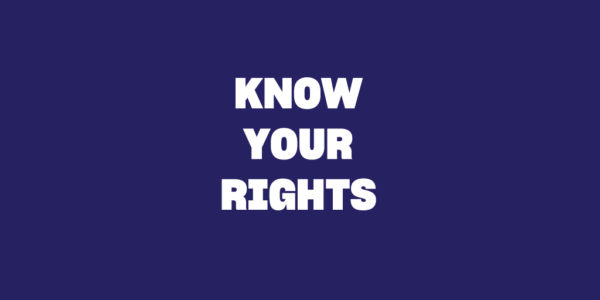by Meg Kneafsey – YEUK Youth Ambassador
Youth Ambassador, Meg, explores the topic of gender discrimination and rights. The aim of her article is to equip you with knowledge about this topic.
Starting your career is daunting for any young person. Fighting gender inequalities in the workplace can be even more challenging. The UK has some great equality laws and knowing your rights is the first step to ensuring you have gender equality.
Hopefully you never experience discrimination in the workplace as a woman but here is a short breakdown of the types of illegal practices, and advice on how to do something about it.
Discrimination
Discrimination can take many forms. You can be directly discriminated against such as being refused a promotion or facing dismissal because you are a woman, or indirectly through policies that disadvantage women. If your workplace is large enough, you may be able to speak to your Human Resource Department. A smaller workplace means you may discuss this directly with your employer. They may be unaware of the discrimination and must take your feedback seriously.
Protection from harassment
Harassment describes when you are subjected to unwanted behaviour that makes you feel intimidated, humiliated, or degraded, or that creates a hostile environment. The Equality Law protects you from harassment due to a number of different characteristics including gender. This can range from unnecessary touching and unwanted physical contact to leering, lewd comments and sending offensive emails.
Working and Pregnancy
If you become pregnant, you are entitled to a number of rights. A recent report from The Equality and Human Rights Commission showed that younger pregnant women are more likely to suffer pregnancy discrimination than older women.
You must inform your employer of your pregnancy at least 15 weeks before the baby’s due (unless you were unaware yourself). Your employee must make reasonable adjustments if your work could affect you or your baby’s health. Time off for antenatal classes must be paid. You are entitled to 52 weeks’ maternity leave and must inform your employer of when you want to take this and for most of this will be paid – see the government’s maternity pay calculator. Throughout you have protection against unfair treatment, discrimination or dismissal either from your pregnancy or maternity leave.
Victimisation
If you complain about gender discrimination and find you’re treated unfairly, either formally or informally, you are being illegally victimised. Citizens Advice gives this example;
“You make a complaint of sex discrimination against your employer. As a result, you’re denied a promotion. This is victimisation and you can take action against your employer under the Equality Act. You’ve suffered a detriment as you didn’t get promoted.”
Exceptions
‘Occupational requirement’ refers to jobs where a specific gender is essential to the role, such as when a job requires someone of a particular gender for reasons of privacy and decency. Positive action may also be used by employers and organisations to make up for a lack of equal opportunity in the past, thus they may give special encouragement to one gender, without actually discriminating against the other.
If you have faced discrimination
If you believe you have been discriminated against and your rights have not been supported, you first step is to complain to the person or organisation involved. Usually these can be settled informally. Put your complaint in writing and keep a copy. If it is an ongoing problem, collect evidence such as dates, names, and incidents. In extreme cases you may require an employment tribunal and can find free legal support from Citizens Advice or contact the Equality Advisory & Support Service.
According to a recent report in The Guardian, the UK has further to go to achieve full gender equality in the workplace. But I hope that now you are armed with greater knowledge to fight gender discrimination. Whether you’re male or female, make sure you support others who may be experiencing discrimination of any kind and know that if you’re the victim, there is help out there.
Volunteer with YEUK
As a Youth Ambassador, Meg has opportunities to write content for our website and attend events on behalf of YEUK. If you’re aged 18-24 and would like to volunteer with us, please visit our Youth Ambassador page to find out more and sign up.








